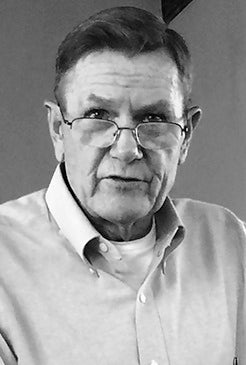Weaver murder
Published 12:00 am Friday, June 24, 2011

Mike Weaver
By Rita Howell
A Batesville woman is launching an effort to keep behind bars the man convicted of killing her little brother.
John Booker has been incarcerated at the State Penitentiary at Parchmen since he pleaded guilty in July, 1981, to murder. Shot in a robbery on March 11, 1981, at a scrap yard in Charleston were the business’s owner, Oliss Martin, 56, and Mike Weaver, 14.
Mike’s sister, Wanda W. Prince, has accumulated a thick file of letters and clippings that document court activities that followed her brother’s death.
The latest entry in those files came last week when a letter from the State Parole Board arrived in Prince’s mailbox. The letter notified Prince as “next of kin of the victim” that John Booker is being considered for parole.
“I want to get word out to the community that he’s up for parole and encourage people to write letters to protest it,” Prince told The Panolian.
She’s been writing letters and attending hearings for the past 30 years.
Also convicted in 1981 in connection with the murders were Kermit Lee Jones and Timothy Gardener. Jones was 17 at the time and Gardener was 14. Booker, the alleged trigger man, was 22. All three were from Tallahatchie County and were arrested at Booker’s home shortly after the murders.
Gardener, who Prince said was not present at the time of the killings, but had helped set up the crime, was sentenced to 10 years in prison. He served the entire sentence and was released, but subsequent convictions on other charges have put him behind bars for life under the “three strikes-you’re out” law.
Jones had pleaded guilty in both murders and was sentenced to life in prison. He has been eligible for parole numerous times over the past 15 years.
Prince has attended at least 10 hearings to protest his release. So far, he has remained in prison.
Booker was originally sentenced to death in the murder of Martin, but a 1990 U.S. Supreme Court ruling on a Mississippi case triggered a 1998 reversal of 22 death penalty cases, including Booker’s, by the State Supreme Court.
(Booker had earlier pleaded guilty to Mike’s murder and had received a sentence of life in prison, thus avoiding the death penalty in the boy’s death.)
In September, 1998, Booker, in a plea-bargain arrangement, pleaded guilty to the murder of Martin and to armed robbery. He was sentenced to life in prison for the capital murder conviction and to 40 years in prison for the armed robbery conviction.
Now he is eligible for parole.
March 11,1981
Mike Weaver went to Martin’s scrap yard in Charleston on a day during his spring break from school, with the goal of earning some money to buy his mother, Joyce, a Mother’s Day present, his sister remembered.
Mike was a seventh grader at Batesville Junior High.
A family friend had dropped Mike off on his way to Grenada. When he returned later in the day, he found both Oliss Martin and Mike shot. Martin was dead at the scene and Mike died that night in the Charleston hospital.
They’d been shot in the head with a .38 caliber pistol. From Martin’s office had been taken $440 in cash.
A story in the next week’s Panolian reported that, according to Charleston Police Chief Jimmy Shows, Booker, Jones and Gardener had worked at the scrap yard earlier on the day of the murders.
The handgun and some of the money believed to have been taken in the robbery were recovered when the arrests were made at Booker’s home.
Booker had initially pleaded not guilty but changed his mind when his trial started in Tate County Circuit Court in July, 1981. Instead he entered a guilty plea in Martin’s murder and prosecutor Robert Williams sought the death penalty.
Booker’s attorney, Cleveland McDowell, told the jury “it was narcotics addiction, alcoholism and dope that killed Mr. Martin,” the Panolian recorded in a July 23, 1981, story.
The jury imposed the death penalty.
September 18, 1998
The Mississippi Supreme Court had thrown out the Tate County jury’s death sentence earlier in 1998 following a 1990 U.S. Supreme Court ruling that reversed another Mississippi death penalty. The high court had cited unfair jury instruction.
Based on that ruling, the state court eventually reversed 22 more cases, including Booker’s.
Rather than face a trial, Booker offered a plea arrangement at a hearing before Judge Andrew Baker in Sardis in September, 1998. He pleaded guilty to the murder of Martin and to armed robbery and was sentenced to life in prison.
Martin’s family, present for the hearing, recommended to Judge Baker that he accept the plea. The trauma of a trial would thus be avoided. Also present in the courtroom was Wanda Prince, who opposed the arrangement.
In a written statement submitted to the judge, Prince said, “… Booker has played the system through legal maneuvers since the beginning of all of this and I don’t think he should be given any deals or plea bargains.”
Thirteen years later, she still doesn’t.
As of press time Thursday, Prince had not received notification of a date for Booker’s parole hearing.





